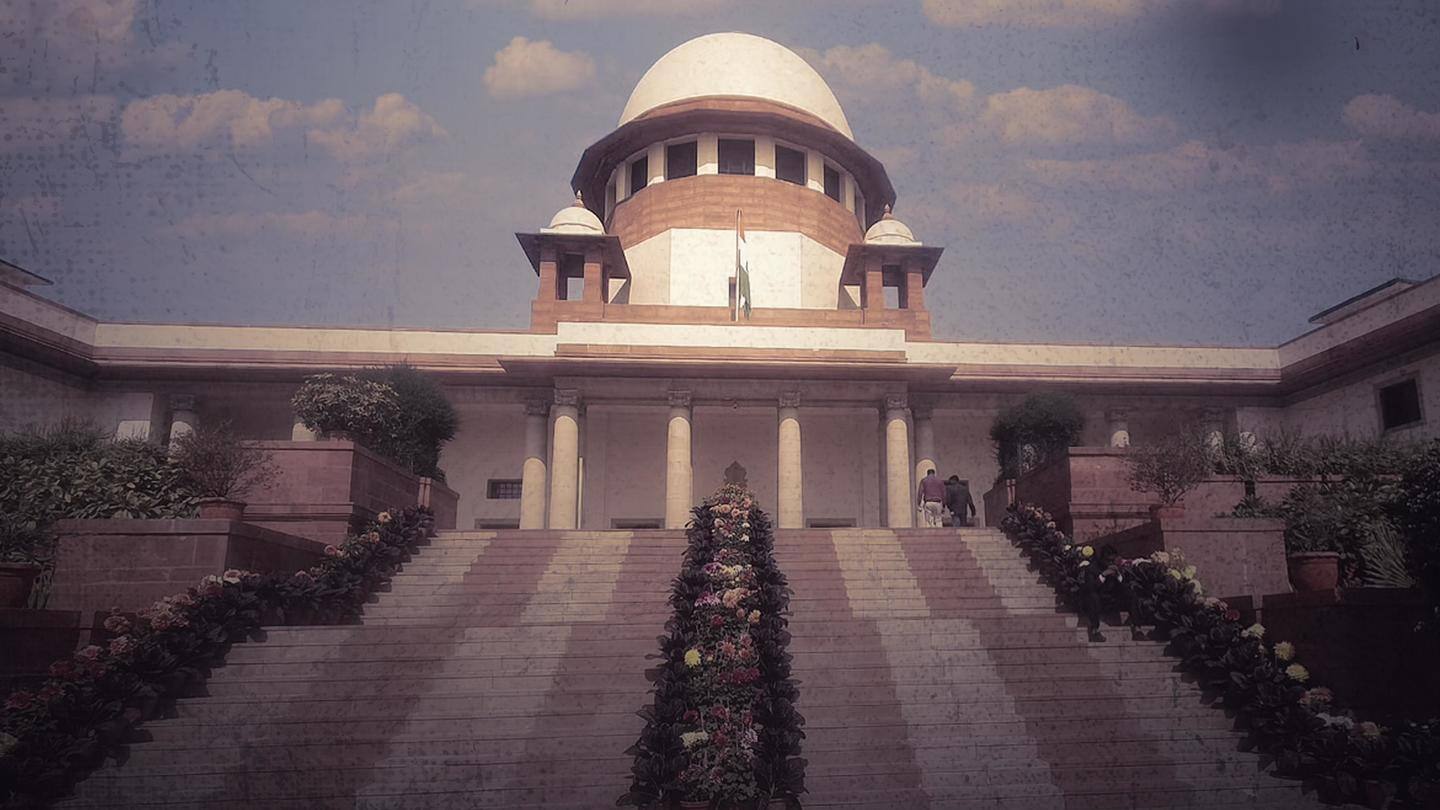
Freebies need extensive hearing: SC refers case to 3-judge bench
What's the story
The Supreme Court on Friday referred the matter related to promises made by various political parties and their election giveaways (freebies) to a three-judge bench led by Justice DY Chandrachud.
As per Live Law, the bench will also review a case involving the Tamil Nadu government's distribution of gifts in the shape of electrical devices like color televisions, laptops, etc.
Context
Why does this story matter?
The move stems from a PIL filed by Ashwini Upadhyay, a lawyer, and former BJP Delhi Spokesperson, asking the Election Commission of India (ECI) to prohibit political parties from promising gifts during election campaigns.
From television sets in Tamil Nadu to laptop computers in Uttar Pradesh to bus trips in Delhi, India has a long history of 'freebies.'
Details
What did CJI Ramana observe?
Chief Justice of India NV Ramana remarked that it would be appropriate to form an expert group to investigate the problem of 'election freebies.'
"The worry raised by petitioner that under the guise of welfare fiscal responsibility is dispensed with must also be considered," Ramana said, according to Live Law.
The CJI recommended that the matter must be heard in an "extensive hearing".
Observations
Earlier decisions need a relook, says SC
The SC stated that its earlier decision needs a relook in order to distinguish between welfare schemes and doles.
The subject of freebies sparked the latest spat between the ruling BJP and opposition, as the Centre cautioned that indiscriminate doles like free power harm the country's economy.
Opposition parties, on the other hand, argue that they are welfare policies for the weakest sectors.
Details
Matter requires no intervention from the court: SC had held
As per The Quint, the three-judge bench will also review the related case Subramaniam Balaji vs State of Tamil Nadu.
In this case, the SC had held that the "state distributing largesse in the form of color TVs, laptops etc. to eligible and deserving persons is directly related to the Directive Principles of State Policy" and requires no intervention from the court.
Earlier judgment
What did Supreme Court's 2013 judgement say?
A two-judge panel ruled in 2013 that promises by political parties of free gifts could not be considered bribes.
It stated that the government provided things and initiatives for the development of the people.
It had also concluded that the court could not establish standards for permitting or disallowing promises made by political parties before elections.